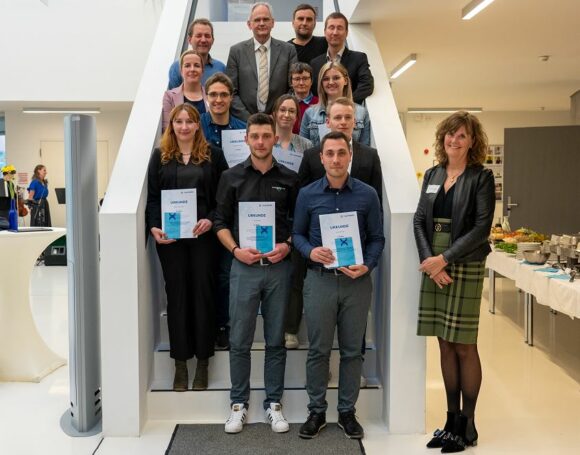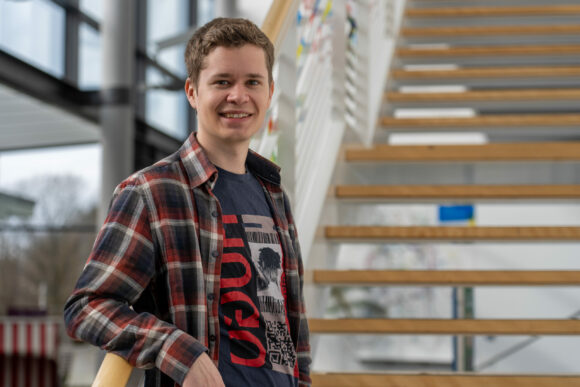Across Germany, more than 100,000 young people are studying dual courses in around 1,600 different degree programs – that is, while studying at a college or university, they also complete firmly integrated practical assignments in companies. Both figures continue to rise. At Hof University of Applied Sciences, too, the dual study program has become a real success model a good 15 years after its introduction. The University of Applied Sciences has registered a total of 1061 dual students since the introduction of dual studies in 2005. This also pays off for the region: Many graduates remain in the Hof region after graduation due to the early networking with companies.
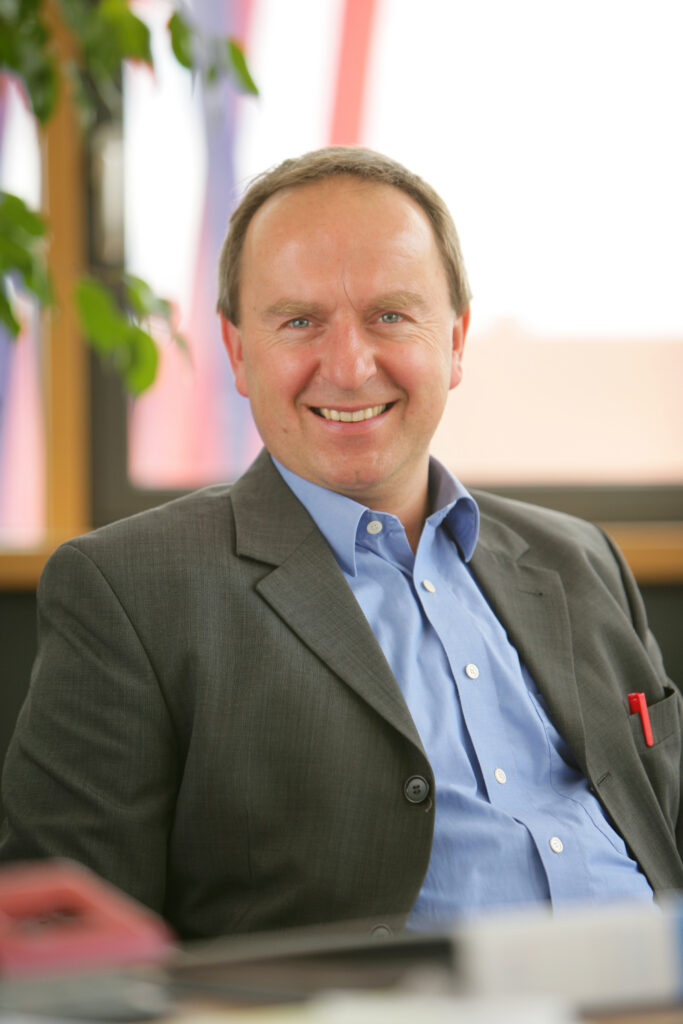
Courses at Hof University of Applied Sciences since 2005: Photo: private;
The beginnings of dual studies date back to the early 1970s, but it was not until 2005 that they were introduced across Bavaria. Since that time, Franz-Xaver Boos, Professor of Business Administration, has also been responsible for coordinating the dual study programs at Hof University of Applied Sciences – a field of growing importance: with a total of 350 dual students in 15 study programs, Hof University of Applied Sciences is in a very good position throughout Bavaria in the summer semester of 2021. Particularly popular are courses of study around the core subjects of business, computer science and engineering. Dual students are employed in the region by companies such as Lamilux, REHAU (both Rehau), the Baur Group (Altenkunstadt) or Heinz-Glas (Kleintettau).
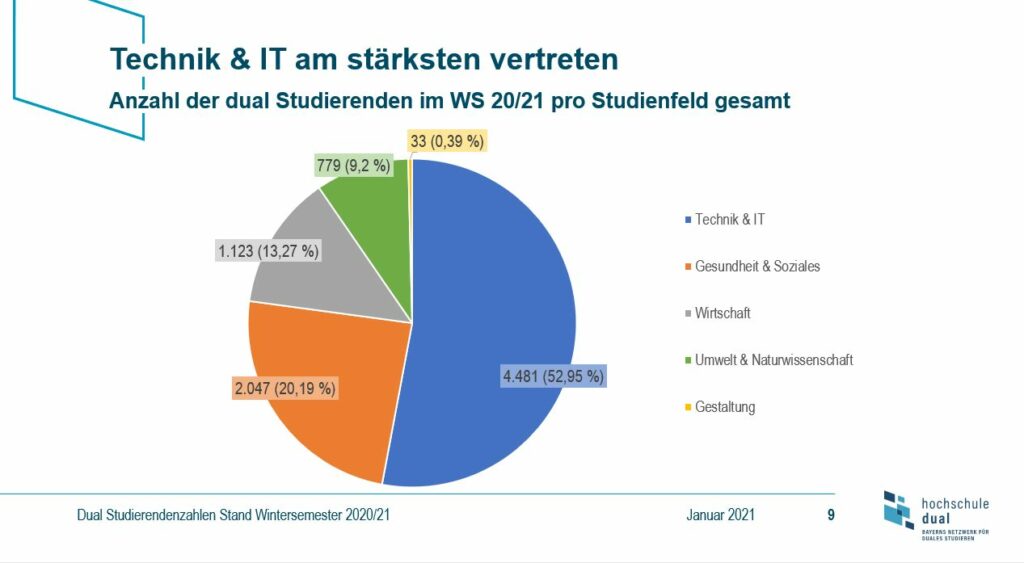
Boos’ task is to carry out the often demanding synchronization of dual training between the university, the vocational schools involved and the often very different practical partners, and to adapt this again and again to changing conditions.
Added value for the region
Convincing companies, which were often rather cautious at first, of the added value of dual studies has become increasingly successful in recent years – and in cooperation with the professional chambers. After all, word of positive experiences spreads quickly and the advantages of dual studies are obvious:
Finding the right talent and retaining it for the long term is a core task for every company. Success in doing so is a key factor in determining success on the market later on.”
Prof. Dr. Franz-Xaver Boos
“By combining practical training in a company with sound scientific knowledge, students acquire a qualification that is in high demand. And the advantages for companies are also obvious: Good young talent is directly tied to the company and already familiarized with the company’s work processes during their studies,” says Prof. Dr. Franz-Xaver Boos. Dual courses of study are therefore an important instrument for companies to secure skilled workers at an early stage – especially for small and medium-sized companies.
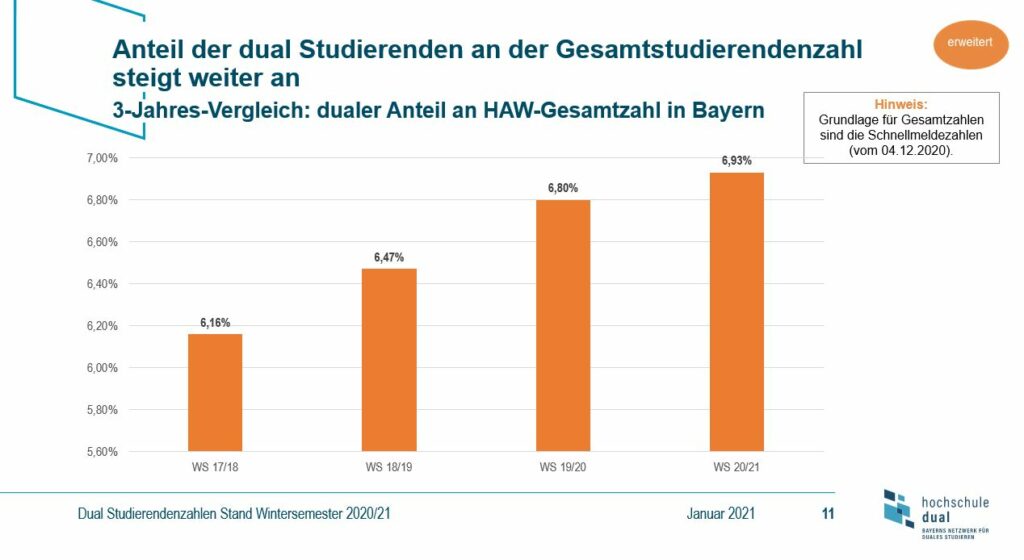
More young people stay
This also has a positive side effect for the region, which has been severely affected by demographic change for many years
The fact that our dual students already establish firm contacts with companies during their studies means that the question of a job is often answered quickly after graduation. Overall, in our experience, dual training has led to many more of our graduates staying in the region after completing their studies and later starting a family here”
Prof. Dr. Franz-Xaver Boos
Greater practical relevance in teaching
But the university itself also benefits from the intensive cooperation with partner companies: “In this way, the practical relevance of teaching in particular is significantly strengthened. Time and again, our students bring very practical business issues to the lectures, which are then dealt with on site,” explains Prof. Dr. Boos. Although the basic coordination between companies and universities has been characterized by great satisfaction for years, his personal goal is to create even more direct links between the university’s more scientific modules and practical applications, says Boos. There is also further potential upside, he added: Particularly in the area of STEM subjects, there is now greater demand from companies than interested students.
Well positioned
Hof University of Applied Sciences has continued to expand its dual offerings in recent years – for example, the very first degree program offered will also be dual study at the new Lucas Cranach Campus in Kronach. With the study program “Innovative Health Care”, a unique offering in Germany will be launched here in the winter semester 2021/22: It is interdisciplinary between the interfaces of health care, computer science and engineering and trains innovative bridge builders between digital technology and social professions
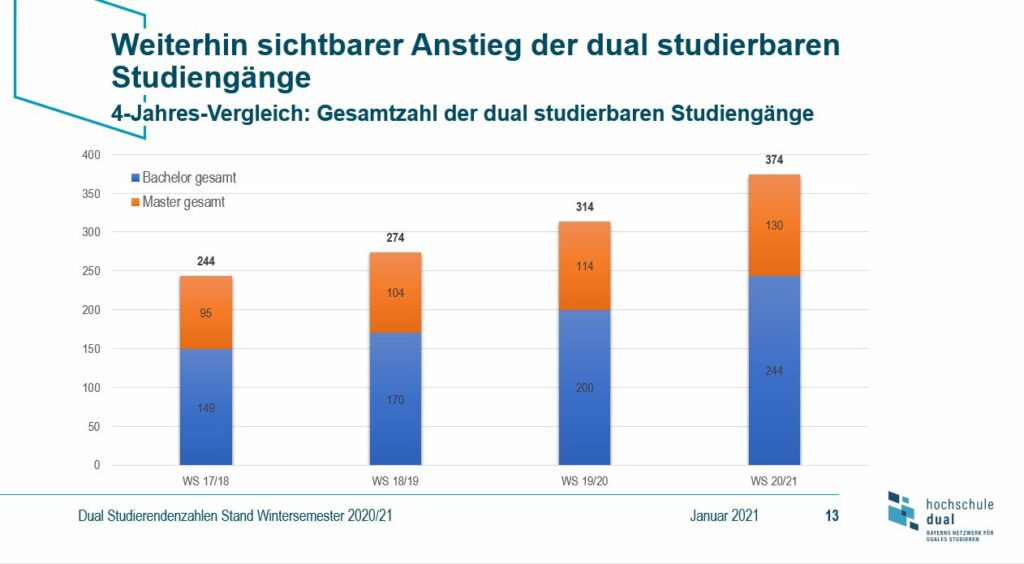
Source: hochschule-dual.de (Bavaria-wide figures)
So the dual offerings are very diverse
We are in the top group in Bavaria when it comes to combined studies. For us it is clear: Whoever best combines the requirements of the companies and the training wishes of the students will also succeed in the competition between the universities. As Hof University of Applied Sciences, we are happy to take up this challenge in the area of dual study programs.”
Prof. Dr. Dr. h.c. Jürgen Lehmann, University President
More information about the dual study program at Hof University of Applied Sciences and the admission requirements for partner companies can be found at: https://www.hof-university.de/studieninteressierte/duales-studienangebot.html





